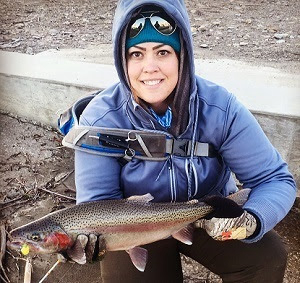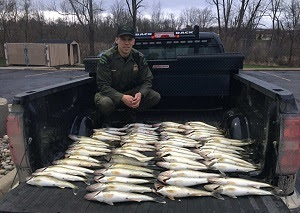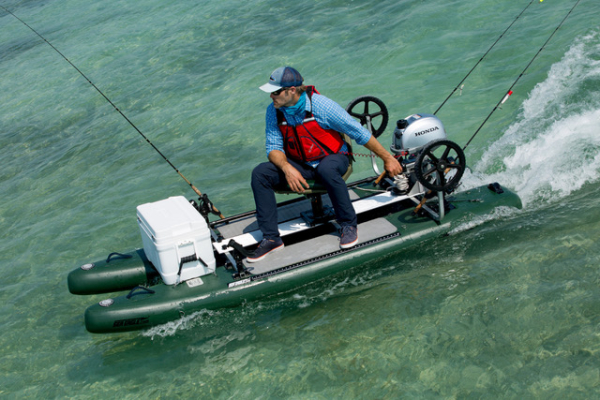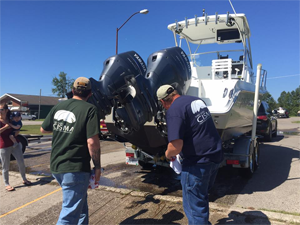Anglers help protect Michigan’s waters from invasive mudsnails
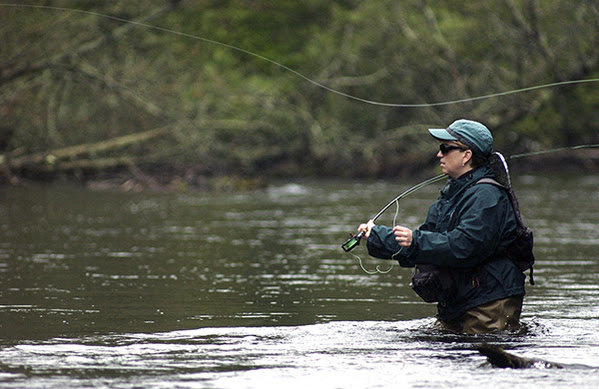
By JOANNE FOREMAN
Michigan Department of Natural Resources

Thousands of anglers across the state are poised to dip their waders into cold-water Michigan lakes, rivers and streams beginning Saturday, looking to tempt a prize brookie, a colorful rainbow or sleek German brown trout.
As they move from one spot to the next, anglers can unknowingly help spread a devastating invasive species, the New Zealand mudsnail.
“If you are going to fish different streams, be sure to clean your waders and boots,” said Jeff Gerwitz, a member of the Vanguard Chapter of Michigan Trout Unlimited, supporting Oakland County’s Paint Creek. “Some people don’t think it’s a big deal or concern, and they don’t take the time to clean and inspect between sites, but now we’re finding these mudsnails in more and more places.”
New Zealand mudsnails were first discovered in the U.S. in Idaho’s Snake River in 1987. Since then, infestations have spread throughout the western states and into areas of the Great Lakes. Read more

